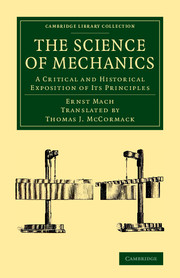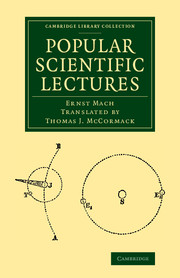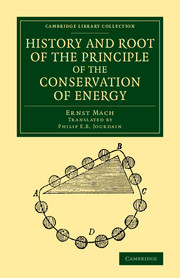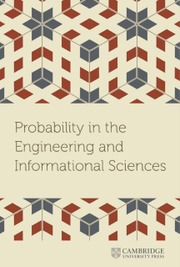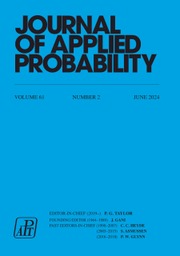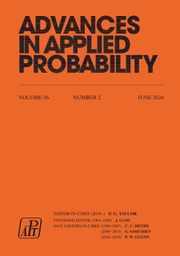The Science of Mechanics
Ernst Mach (1838–1916), the first scientist to study objects moving faster than the speed of sound, propounded a scientific philosophy which called for a strict adherence to observable data. He maintained that the sole purpose of scientific study is to provide the simplest possible description of detectable phenomena. In this work, first published in German in 1883 and here translated in 1893 by Thomas J. McCormack (1865–1932) from the 1888 second edition, Mach begins with a historical discussion of mechanical principles. He then proceeds to a critique of Newton's concept of 'absolute' space and time, reflecting Mach's rejection of theoretical concepts in the absence of definitive evidence. Although historically controversial, Mach's ideas and attitudes informed philosophers as influential as Russell and Wittgenstein, and his insistence upon a 'relative' idea of space and time provided much of the philosophical basis for Einstein's theory of general relativity decades later.
Product details
No date availablePaperback
9781108066488
556 pages
216 × 140 × 32 mm
0.7kg
235 b/w illus.
Table of Contents
- Translator's preface
- Author's preface to the translation
- Preface to the first edition
- Preface to the second edition
- Introduction
- 1. The development of the principles of statics
- 2. The development of the principles of dynamics
- 3. The extended application of the principles of mechanics and the deductive development of the science
- 4. The formal development of mechanics
- 5. The relation of mechanics to the departments of knowledge
- Appendix
- Chronological table
- Index.

